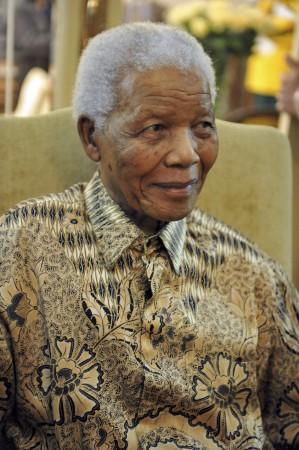Former South African President and anti-apartheid revolutionary, Nelson Mandela, 95, passed away at his home in Johannesburg on Thursday after fighting a lung infection. The death of Nobel Peace Prize laureate has left the world in mourning.
"It is with the deepest regret that we have learned of the passing of our founder, Nelson Rolihlahla Mandela - Madiba. The Presidency of the Republic of South Africa will shortly make further official announcements," announced Nelson Mandela Foundation on Thursday. "We want to express our sadness at this time. No words can adequately describe this enormous loss to our nation and to the world."
Here are 10 Most Important Events in Nelson Mandela's Life:
Political Involvement
Born on18 July, 1918 in a small village of Mvezo, Umtata district in South Africa, Nelson Mandela attended the University of Fort Hare but was expelled for political activism in 1940. He joined the African National Congress in 1944. He along with his friend Oliver Tambo and several others formed the Youth League of the African National Congress with the hope of strengthening the movement against apartheid.
Treason Trial
Mandela eventually became a prominent member of African National Congress. He was arrested several times for rebellious activities in 1950s and was charged with treason in 1956. He was acquitted from treason charges in 1961 after six years of trial.
Second Marriage
Mandela married Winnie Madikizela in 1958 after his 13-year marriage with Evelyn Ntoko ended in a divorce. He wrote in his autobiography, "Long Walk to Freedom: "I cannot say for certain if there is such a thing as love at first sight, but I do know that the moment I first glimpsed (at) Winnie Nomzamo, I knew that I wanted to have her as my wife."
Armed Struggle
After the 1960 Sharpeville Massacre, where many black protesters were killed by the police, Mandela drifted from his non-violence stance by organizing armed struggle with Umkhonto we Sizwe group. He went to Africa and Europe to study guerrilla warfare.
Arrest and Imprisonment
Nelson Mandela was arrested on his return to South Africa in 1960. He was convicted of illegally leaving the country and inciting military attacks. He was initially sentenced to rigorous imprisonment but the sentence was later extended to life imprisonment after the government convicted him of treason.
Death of His Mother and Eldest Son
His mother Noqaphi Nosekeni and eldest son Thembi died in 1968 while he was serving life sentence on Robben Island. He was not allowed to visit the funeral of both his mother and son.
Release from Prison
South African President F.W. De Klerk lifted ban on ANC and started doing away with apartheid regime soon after coming to power. Mandela was released from prison on 11 February, 1990 after 27 years of imprisonment. His release was welcomed by not only South Africans from people from all over the world.
Nobel Peace Prize
Nelson Mandela was honoured with the Nobel Peace Prize in 1993. He shared the coveted prize with South African President F.W. De Klerk who secured the release of Mandela and brought apartheid regime to an end.
Elected President of South Africa
Nelson Mandela was elected President of South Africa in 1994, becoming the first black president in the country. He gave his farewell as the president of South Africa on 29 March 1999 after serving the country for five years.
Retiring from Retirement
A few years after retiring from political life, Nelson Mandela announced his retirement from public life in 2004 amid ill health. Nelson Mandela Foundation discouraged invitations to public events but the legend continued to earnestly world for his Nelson Mandela Foundation. In 2009, the United Nations declared his birthday, 18 July as Nelson Mandela International Day.










!['Had denied Housefull franchise as they wanted me to wear a bikini': Tia Bajpai on turning down bold scripts [Exclusive]](https://data1.ibtimes.co.in/en/full/806605/had-denied-housefull-franchise-they-wanted-me-wear-bikini-tia-bajpai-turning-down-bold.png?w=220&h=138)



